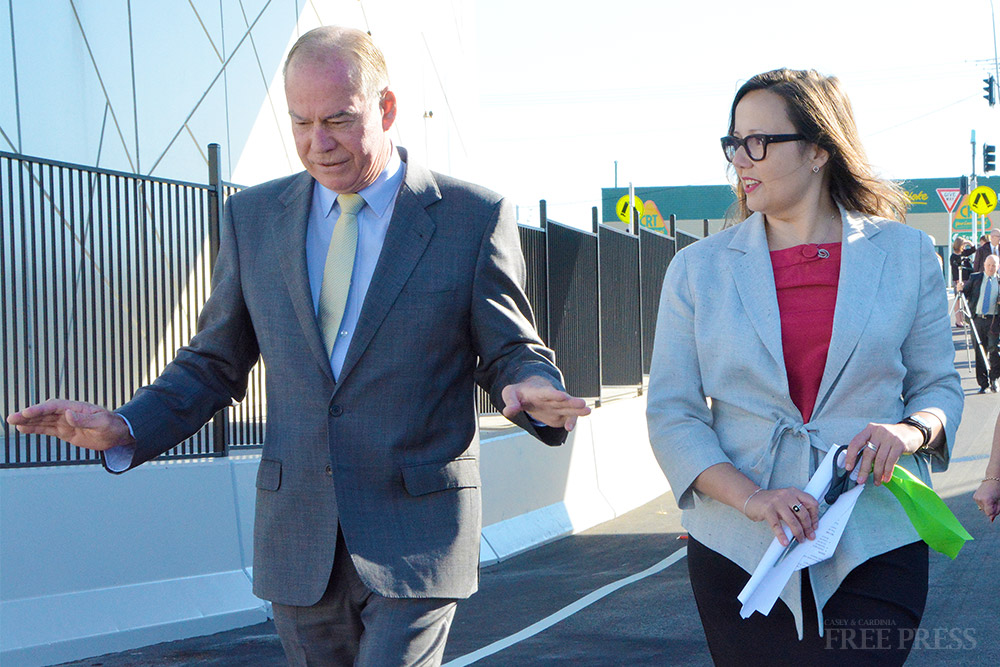
Russell Broadbent has said he will not support a motion for marriage equality despite a majority of voters in his electorate wanting him to.
Image: Mr Broadbent with Victoria’s first out female MP and marriage equality campaigner Harriet Shing. Photo by author.
Almost 63 per cent of the Liberal MP’s electorate, McMillan, voted in favour of allowing same sex couples to marry in the recent national marriage law postal survey.
ADVERTISEMENT
That result was below Victoria’s average of 64.9 per cent, but above the national average of 61.6 per cent.
Mr Broadbent yesterday told ABC Gippsland he intends to vote no or abstain from voting when legislation to allow same sex marriage reaches the House of Representatives.
Requests from the Casey & Cardinia Free Press for comment from Mr Broadbent went unanswered, so here’s what Mr Broadbent told the ABC:
“I’m not unsure of how I will vote,” Mr Broadbent told Jonathon Kendall.
“I’ll either abstain or vote no, but it’s likely I’ll abstain.
ADVERTISEMENT
“My position on this has been well known by my community for forever, for as long as I’ve been the member.
“I note the very strong vote in McMillan for same sex marriage based on the position of equality, and I dare say that if you ever put a proposition to an Australian about equality, you’re on a hiding to nothing because that’s in our DNA, and I expected the vote we received.”
Audio: listen to ABC Gippsland’s interview in full by hitting the play button above.
Asked why he would not be voting yes in light of this, Mr Broadbent said that was “because of a long-held position on this particular issue.”
“I was one of the 36,500 in my electorate [who] voted no in the survey.
“I expect the parliament… will respect the Australian vote, and it’s likely the representatives will probably vote 60/40 or 70/30 for the legislation.
ADVERTISEMENT
“I will not be obstructionist, I understand and respect the will of the Australian people as voiced through this survey, but at the same time I have a long-held standing position on this.”
Asked if he was respecting the views of his electorate by abstaining despite support for a yes vote, Mr Broadbent said yes.
“I believe that I am because I can also represent the 36,500. I represent them as well, not just the the 62 per cent. I also represent the 36,500 [who] voted no.
“I look at each proposition as it comes forward.”
Jonathon Kendall went on to ask what Mr Broadbent meant when he said he will not be obstructionist.
“I won’t be obstructionist in that, as has been proffered by some, that they will be trying to wind back anti-discrimination laws in the process.”
2 responses to “McMillan votes YES, but Russell Broadbent says NO to same sex marriage”



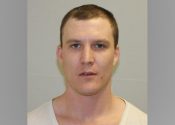
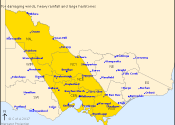
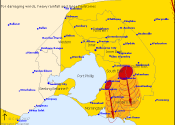
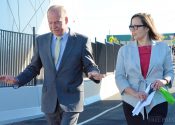













There lies the problem with our democracy: there are two ways an elected official can act. Either “by the will of the people”, or “by the courage of my convictions”.
The first “populist” approach is often promoted when they are campaigning & making promises – letting the electorate feel that the pollie works for & represents them & their interests.
The second “Popeye*” approach (*“I am what I am!”) appears once the pollie is in power, and makes a decision against his electorate (pro party policy, religion and/or business). Here the defense is often portrayed as “standing by the courage of my convictions”, “looking at the big picture”, “the science is not conclusive” or other lies & cop-outs.
We the people must insist that future representatives give us a clear indication of which way they’ll vote. We can’t anticipate every decision they will be faced with, so we need to know their guiding principal.
Will they be truly democratic or dogmatic? Will they follow science & logic, or religion & superstition? Will they follow the will of the people, or party policy when their is a conflict.
Demand to know before you vote, and we’ll be more likely to get what we asked for!
The majority of Australians voted yes. The majority of the electorate voted yes. He voted no. One of only four of all lower house members in the country. Quite simple, the majority of the electorate should vote out this member next election.